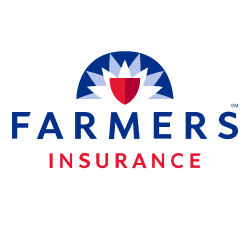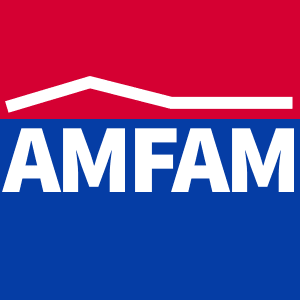We analyzed dozens of home insurance companies on their average costs, customer service and coverage options to identify the standout performers on the market. Amica emerged as the top choice, especially for its low average rates and exceptional customer service reputation. These five insurers represent the best options for different homeowner needs, from budget-conscious buyers looking for the cheapest home insurance to those seeking a positive customer experience.
Best Homeowners Insurance Companies in 2026
Amica is the best homeowners insurance company based on its low average costs and positive customer service reputation.
Find out if you're overpaying for homeowners insurance below.

Updated: February 1, 2026
Advertising & Editorial Disclosure
Amica takes the top spot for the best overall homeowners insurance company based on value, customer satisfaction and coverage, according to our research. USAA, AAA, Farmers and Chubb are also strong options.
Amica offers the lowest average home insurance rates for a variety of homeowner profiles, with an overall average rate of $1,428 per year.
Homeowners insurance costs vary based on personalized factors like your location, home value and coverage needs. Compare quotes from multiple providers to find the best cost and coverage.
Top Homeowners Insurance Companies
Amica | Best Overall Home Insurance Company | $1,428 |
USAA | Best for Military | $2,233 |
AAA | Best Value | $1,623 |
Farmers | Best Discount Opportunities | $2,251 |
Chubb | Best Customer Experience | $4,431 |

Best Overall Home Insurance Company
Average Annual Premium
$1,428Based on our methodology's base profile of a policy with $250K in dwelling coverage, $125K in personal property coverage and $200K in liability coverage with a $1,000 deductibleAverage Monthly Premium
$119Based on our methodology's base profile of a policy with $250K in dwelling coverage, $125K in personal property coverage and $200K in liability coverage with a $1,000 deductibleJ.D. Power Customer Satisfaction Score
705/1,000From the J.D. Power 2025 U.S. Home Insurance Study, which examines customer satisfaction based on responses from 14,511 homeowners and renters. The average score is 642/1,000.
- pros
Cheapest coverage choice for most homeowner profiles
Strong financial stability with an A++ rating from AM Best
Offers nine discount opportunities for further savings
consPolicies not available to homeowners in Alaska or Hawaii
Limited network of local agents compared to larger national insurers
Amica ranked as the most affordable option across multiple homeowner profiles we looked at, providing budget-conscious homeowners with low average rates while also providing a positive customer service experience.
Our rate analysis found Amica consistently offers some of the lowest premiums. Whether you're insuring an older home with high coverage limits or a newer property with basic protection, Amica's rates beat competitors by meaningful margins.
This affordability becomes more impressive considering what you get for those lower premiums. Amica earned top marks in customer service, with policyholders praising responsive claims handling and knowledgeable representatives. The company's strong financial ratings from AM Best confirm its ability to pay claims reliably.
Amica's main limitation is fewer coverage add-ons compared to larger insurers like State Farm or Allstate. However, the company covers all the essentials most homeowners need, and its standard policies often include features that competitors charge extra for.
With an average rate of $119 per month, Amica consistently offers some of the cheapest homeowners insurance rates we've found. Whether you're covering an older home or a new build, want high or low coverage limits or have filed claims before, Amica's prices beat most competitors. This makes it a great choice if you want to keep your premium low without sacrificing quality customer service.
Find out what Amica charges on average for your home coverage and where it ranks among competitors.
Data filtered by:$250K Dwelling / $125K Personal Property / $200K LiabilityMiddle AgeGood$119 -58% 2 Amica earned the top spot in the J.D. Power 2025 Home Insurance Study with a score of 705 out of 1,000, reflecting the company's commitment to exceptional customer service. This confirms what policyholders consistently report: Amica delivers responsive claims handling and knowledgeable support when you need it most.
Positive reviews for the company mention that helpful representatives take time to explain coverage details and walk customers through the claims process without rushing them off the phone. For homeowners who value reliable support and clear communication from their insurance company, Amica's track record of customer satisfaction makes it a standout choice.
While Amica doesn't offer as many add-on options as larger insurers, the company covers the coverage enhancements that most homeowners actually need:
- Water backup coverage: Covers damage from water or sewage backing up through your home's plumbing system.
- Flood insurance: Separate coverage for flood damage not covered by standard homeowners policies.
- Scheduled personal property: Additional protection for valuable items like jewelry, art and antiques.
- Replacement coverage: Reimburses the full cost to replace damaged items at today's prices, not their depreciated value.
- Electronics coverage: Covers accidental damage to laptops, smartphones, and tablets.
- Identity theft coverage: Helps recover from financial impacts of stolen identity.

Best for Military
Average Annual Premium
$2,233Based on our methodology's base profile of a policy with $250K in dwelling coverage, $125K in personal property coverage and $200K in liability coverage with a $1,000 deductibleAverage Monthly Premium
$186Based on our methodology's base profile of a policy with $250K in dwelling coverage, $125K in personal property coverage and $200K in liability coverage with a $1,000 deductibleJ.D. Power Customer Satisfaction Score
737/1,000*From the J.D. Power 2025 U.S. Home Insurance Study, which examines customer satisfaction based on responses from 14,511 homeowners and renters. The average score is 642/1,000. *USAA earns a score but is not ranked due to its eligibility requirements.
- pros
Consistently ranks among the highest for customer service and claims handling in the industry
A++ rating from AM Best demonstrates excellent financial stability
Affordable average costs for military members
consCoverage is limited to military, veterans and their families
USAA serves only military members, veterans and their families, charging some of the industry's lowest rates while including features other insurers charge extra for.
USAA includes replacement cost coverage and identity theft protection at no extra cost. Most competitors charge separately for these benefits. Military families get more protection than basic policies from other companies provide.
USAA tops customer satisfaction surveys because military families say the company understands their circumstances. The military-only focus lets USAA offer specialized services other insurers can't match. Eligible service members and veterans get competitive rates, full coverage and customer service built for military life.
Military members and their families pay $186 monthly on average through USAA, one of the cheapest options we found. The company packs more into standard policies than competitors do. Replacement cost coverage and identity theft protection come included while other insurers add separate charges for these features.
The table shows how USAA's rate compares to other insurers.
Data filtered by:$250K Dwelling / $125K Personal Property / $200K LiabilityMiddle AgeGood$186 -35% 6 USAA scored 737 out of 1,000 points in the J.D. Power Home Insurance Study, the highest score. J.D. Power doesn't officially rank it because only military families qualify. Military families say USAA understands challenges like frequent moves and deployment coverage needs. File a claim while deployed overseas or adjust coverage during a move and USAA's team handles it quickly.
USAA offers extensive add-ons built for military families' needs, covering property and liability risks:
Property Protection:
- Home Protector: Boosts dwelling coverage by 25% for unexpected rebuilding costs or code upgrades.
- Water backup coverage: Pays for damage from water or sewage backing up through plumbing.
- Earthquake coverage: Protects your home and belongings from earthquake damage.
- Wildfire Response program: Protects your home from active wildfires in covered states.
High-Value Items:
- Valuable Personal Property (VPP): Covers jewelry, firearms and smartwatches without a deductible.
- Electronics coverage: Pays for accidental damage to computers, tablets, wearables and phones.
- Collectibles insurance: Covers vintage toys, model trains, military memorabilia and comic books.
Liability and Specialized Coverage:
- Home-sharing coverage: Raises liability and property coverage for short-term rentals.
- Umbrella insurance: Adds liability coverage beyond your policy limits for major lawsuits.

Best Value
Average Annual Premium
$1,623Based on our methodology's base profile of a policy with $250K in dwelling coverage, $125K in personal property coverage and $200K in liability coverage with a $1,000 deductibleAverage Monthly Premium
$135Based on our methodology's base profile of a policy with $250K in dwelling coverage, $125K in personal property coverage and $200K in liability coverage with a $1,000 deductibleJ.D. Power Customer Satisfaction Score
Varies by AAA ClubFrom the J.D. Power 2025 U.S. Home Insurance Study, which examines customer satisfaction based on responses from 14,511 homeowners and renters. The average score is 642/1,000.
- pros
Affordable rates for homeowners with poor credit
Positive customer service reputation for member-focused service and support
Access to AAA benefits like roadside assistance and member discounts
consAAA membership required to purchase insurance coverage
Limited discount opportunities compared to competitors
AAA earned our "Best Value" award for combining solid protection with low rates, particularly for high-risk homeowners.
AAA charges some of the lowest premiums for homeowners insurers consider risky: poor credit, older homes and high fire-risk areas. The company holds an A rating from AM Best for financial stability. AAA's Triple Check service reviews your coverage to confirm you're getting full protection and every available discount.
AAA's membership structure lets it bundle insurance with other services, creating more ways to save through member benefits. The coverage addresses gaps standard policies miss, like service line protection and home systems coverage.
AAA members with credit challenges or hard-to-insure properties get reliable coverage at competitive rates.
AAA earned its "Best Value" award with an average monthly premium of $135, ranking among the cheapest options for homeowners who pay more elsewhere. The company charges competitive rates for high-risk profiles: poor credit, older homes and high fire-risk properties.
Data filtered by:$250K Dwelling / $125K Personal Property / $200K LiabilityMiddle AgeGood$135 -53% 4 AAA offers personalized service through its Triple Check program: free coverage reviews that explain your insurance, find available discounts and confirm you're using all AAA membership benefits. This goes beyond standard insurance sales by building the right coverage for your needs and budget. The company's A rating from AM Best proves financial stability and reliability when paying claims.
AAA offers fewer coverage options than many competitors, but the choices address common gaps in standard policies:
- Service Line Coverage: Pays for damage to underground utilities like water, sewer or power lines.
- Home Systems Protection: Covers breakdowns of air conditioning, furnaces and water heaters.
- Inland Flood Coverage: Built for low to moderate risk areas, covering residential flood losses other policies exclude.

Best Discount Opportunities
Average Annual Premium
$2,251Based on our methodology's base profile of a policy with $250K in dwelling coverage, $125K in personal property coverage and $200K in liability coverage with a $1,000 deductibleAverage Monthly Premium
$188Based on our methodology's base profile of a policy with $250K in dwelling coverage, $125K in personal property coverage and $200K in liability coverage with a $1,000 deductibleJ.D. Power Customer Satisfaction Score
631/1,000From the J.D. Power 2025 U.S. Home Insurance Study, which examines customer satisfaction based on responses from 14,511 homeowners and renters. The average score is 642/1,000.
- pros
Offers one of the best discount selections of any home insurer
Large network of local agents for in-person service
Affordable average rates for many homeowners
consLimited add-on coverage options compared to some competitors
Below-average performance in J.D. Power study
Farmers offers 14 different discounts, more than most competitors provide.
Our research shows Farmers charges affordable rates on average. The company helps customers cut premiums through discount programs, from bundling policies to installing safety features.
Farmers offers solid coverage with flexible customization, including guaranteed replacement cost coverage that pays full rebuilding costs regardless of policy limits. The agent-focused model means you work with a local representative who explains coverage and maximizes your discounts. Customers who want personalized service and lower premiums through discounts get strong value from Farmers.
Farmers charges an average of $188 monthly, ranking among the cheapest house insurers. Base rates aren't the absolute lowest, but the extensive discount program cuts your actual premium. With 14 discount opportunities, more than most competitors, qualifying homeowners save significantly through bundling, safety features and loyalty programs.
Data filtered by:$250K Dwelling / $125K Personal Property / $200K LiabilityMiddle AgeGood$188 -34% 7 Farmers works through local agents who explain coverage options and discounts. This gives you a dedicated representative for policy questions and claims. The company's A rating from AM Best proves strong financial stability and reliable claim payments.
Farmers offers extensive customization beyond standard coverage:
Enhanced Dwelling Protection:
- Extended replacement cost: Pays up to 25% above policy limits if rebuilding exceeds your coverage.
- Guaranteed replacement cost: Pays full rebuilding costs regardless of policy limits.
- Building ordinance or law: Covers required code upgrades after damage.
Additional Property Coverage:
- Sewer and drain water damage: Pays for water backing up through drains and sumps.
- Scheduled personal articles: Enhanced coverage for jewelry, firearms and silverware.
- Identity shield: Professional help if your identity gets stolen.
Separate Policy Options:
- Flood insurance: Covers flood damage standard policies exclude.
- Earthquake insurance: Pays for earthquake damage homeowners policies don't cover.
- Personal liability umbrella: Adds $1 million to $10 million liability coverage beyond standard limits.

Best Customer Experience
Average Annual Premium
$4,431Based on our methodology's base profile of a policy with $250K in dwelling coverage, $125K in personal property coverage and $200K in liability coverage with a $1,000 deductibleAverage Monthly Premium
$369Based on our methodology's base profile of a policy with $250K in dwelling coverage, $125K in personal property coverage and $200K in liability coverage with a $1,000 deductibleJ.D. Power Customer Satisfaction Score
677/1,000From the J.D. Power 2025 U.S. Home Insurance Study, which examines customer satisfaction based on responses from 14,511 homeowners and renters. The average score is 642/1,000.
- pros
Exceptional customer service reputation
Top financial stability with A++ AM Best rating
Consistent positive performance in J.D. Power Home Insurance Studies
consHigher average premiums than many competitors
Chubb earned our "Best Customer Experience" award for personalized attention standard insurers don't provide.
Chubb ranked second in the J.D. Power 2025 Home Insurance Study with a score of 677 for superior customer care. The company includes complimentary home appraisals with risk consultants who visit your property, confirm full protection and give security advice.
Chubb holds an A++ rating from AM Best for outstanding financial stability. Customers know claims get paid reliably. The company offers innovative services like HomeScan technology that finds hidden problems before damage occurs, plus replacement cost coverage that rebuilds your home exactly as it was.
Chubb charges higher premiums than average, but exceptional service and unique benefits suit homeowners who want superior protection and personalized attention over basic coverage.
Chubb charges an average of $369 monthly for comprehensive coverage and superior service. This runs higher than the national average but includes extensive features other insurers don't offer or charge extra for: complimentary home appraisals and advanced replacement cost coverage that rebuilds your home exactly as it was.
Data filtered by:$250K Dwelling / $125K Personal Property / $200K LiabilityMiddle AgeGood$369 30% 11 Chubb earned our "Best Customer Experience" award and ranked second in J.D. Power's 2025 Home Insurance Study with a score of 677 after holding first in 2024. Risk consultants conduct complimentary home appraisals, note details that make your house a home and give security and fire prevention advice. During claims, Chubb arranges temporary housing, including homes in your school district when possible. The A++ AM Best rating confirms financial strength and prompt claim handling.
Chubb offers comprehensive coverage with unique features beyond standard policies:
Enhanced Protection:
- Extended replacement cost: Pays full rebuilding costs even if they exceed policy limits, including code upgrades.
- Cash settlement option: Take cash payment instead of rebuilding after total loss.
- Replacement cost coverage: Replaces custom appliances, cabinets and flooring with exact or latest models.
Innovative Services:
- HomeScan technology: Uses infrared detection to find hidden leaks or electrical issues before damage occurs.
- Risk consulting: Complimentary home appraisals and security consultations from trained specialists.
- Temporary living assistance: Finds comfortable housing during repairs, including homes in your area.
Additional Benefits:
- Flexible settlements: Choose cash payments instead of replacement for damaged belongings.
- Comprehensive extras: Covers tree removal and lock replacement.
Other Home Insurance Company Reviews
Compare rates and coverage from other homeowners insurance providers we evaluated:
Best Homeowners Insurance by State
We analyzed top-rated home insurers in each state based on their affordability, customer satisfaction and available coverage options. The table below shows the best home insurance provider for each state with average premiums for $250K in dwelling coverage.
| Alabama | USAA | $3,720 |
| Alaska | USAA | $1,209 |
| Arizona | USAA | $1,655 |
| Arkansas | USAA | $2,491 |
| California | USAA | $1,351 |
| Colorado | USAA | $4,314 |
| Connecticut | USAA | $1,289 |
| Delaware | Allstate | $953 |
| District of Columbia | USAA | $865 |
| Florida | Chubb | $10,821 |
| Georgia | USAA | $1,930 |
| Hawaii | AIG Insurance | $519 |
| Idaho | USAA | $1,634 |
| Illinois | USAA | $1,766 |
| Indiana | USAA | $1,904 |
| Iowa | USAA | $1,984 |
| Kansas | Farmers | $2,974 |
| Kentucky | Allstate | $2,663 |
| Louisiana | USAA | $3,453 |
| Maine | Chubb | $892 |
| Maryland | USAA | $1,488 |
| Massachusetts | USAA | $1,187 |
| Michigan | USAA | $1,970 |
| Minnesota | Chubb | $1,990 |
| Mississippi | USAA | $2,811 |
| Missouri | USAA | $2,464 |
| Montana | USAA | $2,736 |
| Nebraska | USAA | $2,566 |
| Nevada | USAA | $1,499 |
| New Hampshire | Amica | $742 |
| New Jersey | Chubb | $957 |
| New York | Farmers | $1,414 |
| North Carolina | USAA | $2,652 |
| North Dakota | Allstate | $1,892 |
| Ohio | USAA | $1,361 |
| Oklahoma | USAA | $4,656 |
| Oregon | USAA | $882 |
| Pennsylvania | USAA | $1,313 |
| Rhode Island | Amica | $1,354 |
| South Carolina | USAA | $2,453 |
| South Dakota | USAA | $3,734 |
| Tennessee | USAA | $2,041 |
| Texas | USAA | $4,243 |
| Utah | USAA | $1,238 |
| Vermont | USAA | $903 |
| Virginia | Chubb | $1,663 |
| Washington | USAA | $1,592 |
| West Virginia | USAA | $1,241 |
| Wisconsin | Chubb | $1,021 |
| Wyoming | USAA | $1,478 |
Home insurance costs vary by state due to differences in weather risks, building costs and state regulations, with premiums in hurricane- and wildfire-prone areas often double those in low-risk regions.
Even within the same state, rates differ between cities and even ZIP codes based on local factors like crime rates, proximity to fire stations and neighborhood claims history. Always compare quotes from multiple insurers since companies weigh these location factors differently, potentially saving you hundreds of dollars annually.
Ensure you are getting the best rate for your insurance. Compare quotes from the top insurance companies.
How to Save on Homeowners Insurance
Coverage from the best homeowners insurance companies doesn't have to break the bank, but many people overpay without realizing it. The average homeowner can save hundreds annually by making strategic changes to their coverage and shopping habits. Here's how to cut your costs while keeping the protection you need.
We found some insurers charge double or triple what others do for identical coverage in the same ZIP codes. Get quotes from at least three insurers to find the best rate. You may save money by switching insurers.
Bundling your home and auto insurance saves 5% to 25% on your homeowners premium. We analyzed bundling discounts from major insurers and found State Farm offers the highest discount at 25% and the cheapest bundle at $2,559 annually. Discounts and costs vary by provider.
Opting for a higher deductible can lower your annual house insurance cost. Our team found that increasing your deductible from $500 to $2,000 saves an average of $500 per year. Choose a deductible you can afford if disaster strikes, since you'll need to cover that amount out of pocket when filing a claim.
Your credit score impacts homeowners insurance rates in most states (except California, Hawaii, Massachusetts and Michigan), and the difference is major. Homeowners with good credit pay an average of $3,548 annually, compared to $6,711 per year for those with poor credit — a difference of over $3,000 based on credit score alone.
Pay bills on time, keep credit card balances low and avoid opening unnecessary new accounts to gradually improve your credit score and qualify for lower rates.
Location influences rates more than most homeowners realize. Distance to a fire station or fire hydrant, local crime rates and natural disaster risk all affect what you pay.
If you're house hunting, run insurance quotes before making an offer. A home that costs $50 more monthly to insure means $18,000 in additional costs over a 30-year mortgage.
Insurance companies offer dozens of discounts most customers never request. Loyalty discounts reward long-term customers. Claims-free discounts recognize clean records. New home discounts apply to recently built properties. Protective device discounts cover burglar alarms and deadbolt locks. Retirees may qualify for savings since they're home more often.
Ask your insurer about all applicable discounts when shopping or reviewing your policy.
Your coverage should evolve with your home's value and your belongings. Inflation means rebuild costs increase annually, but many policies don't automatically adjust over time. Being underinsured saves money up front but costs more when you file a major claim.
How to Find the Best Homeowners Insurance Provider for You
Finding the right homeowners insurance means matching coverage to what you need and can afford. The cheapest policy fails if it leaves you underprotected. The most expensive might burden you with extras you won't use.
Guide your search with these factors:
- Compare coverage limits, not just premiums: Know what home insurance covers so skimping on dwelling coverage doesn't cost thousands after a claim.
- Research customer service and reputation: Check J.D. Power ratings, state complaint data and Trustpilot reviews to see how insurers treat customers during claims.
- Consider your home's unique risks: Older homes, flood zones and high-crime areas need different coverage priorities.
- Factor in available discounts: Bundle policies, install security systems or stay loyal to cut your premium.
- Match the insurer to your preferences: Some companies excel at digital service, others send local agents, and a few specialize in expensive homes.
Our Best Home Insurance Company Matcher helps you find insurers that fit your specific situation, budget and coverage needs in just a few questions:
Best Home Insurance Company Matcher
Find the home insurance provider that fits your personal needs and preferences.
Basic Details
Top-Rated Home Insurance Companies: Bottom Line
The best homeowners insurance company for you depends on what matters most, whether that's Amica's affordable rates, USAA's military-focused benefits or Chubb's premium service. Getting quotes from multiple insurers helps you understand your options and find the right balance of coverage and cost for your situation.
Ensure you are getting the best rate for your insurance. Compare quotes from the top insurance companies.
Finding the Best Homeowners Insurance: FAQ
Here are answers to common questions about choosing the best home insurance provider:
What are the best home insurance companies?
The best home insurance companies vary by what you prioritize, but our top picks include Amica for overall value and affordability, USAA for military members, AAA for budget-conscious homeowners, Farmers for discount opportunities and Chubb for premium customer service.
Each excels in different areas, so the "best" depends on what matters most to you in a home insurance policy and company.
Who has the cheapest homeowners insurance?
Amica consistently ranked as the most affordable option across nearly every homeowner profile we analyzed, with an average cost of $119 per month and competitive rates for various coverage scenarios.
AAA also offers excellent value with an average monthly premium of $135, especially for homeowners with poor credit or other high-risk profiles who tend to receive higher rates from other insurers.
What factors affect the cost of a home insurance policy?
Your location has the biggest impact on rates, with homes in areas prone to hurricanes, wildfires or crime costing much more to insure than properties in low-risk regions. Other major factors include your home's age and condition, your credit score (in most states), your claims history, chosen coverage limits and deductible.
How do you choose the best homeowners insurance company?
Don’t let price be your only guide. A low-cost policy might seem like a bargain until it leaves you underinsured when it matters most.
Before choosing an insurer, check customer service ratings from trusted sources like J.D. Power to ensure reliability. Also, think about the unique risks your home may face and look for companies that offer the right coverage add-ons to fit your situation.
Which home insurance company has the best customer service?
Chubb won our "Best Customer Experience" award and scored 705 in the J.D. Power 2025 U.S. Home Insurance Study, ranking second overall. Military members and their families should consider USAA, which scored 737 out of 1,000 points in the J.D. Power study, the highest of any insurer.
How much homeowners insurance coverage do I need?
Your dwelling coverage should equal the full cost to rebuild your home (not its market value), which often requires a professional appraisal or construction cost calculator. For personal property, inventory your belongings to determine adequate coverage limits and choose liability coverage that matches your total assets to protect against lawsuits.
Homeowners Insurance: Expert Insights
It can be challenging to find the right homeowners insurance for your needs when you're looking to purchase a policy. MoneyGeek consulted industry experts, leaders and academics nationwide to provide insights on homeowners coverage to simplify the process for you.
Our Methodology: How We Determined the Best Home Insurance Companies
MoneyGeek's analysis uses data from Quadrant Information Services, an insurance analytics firm. We combined premium data, customer satisfaction ratings, financial stability assessments and coverage analysis to give you accurate information when comparing insurers. Rates represent averages and may not match your individual circumstances.
We analyzed premium data from major carriers in all 50 states. Companies got evaluated on affordability, customer service, financial stability, coverage options and available discounts. We used J.D. Power satisfaction scores, AM Best financial ratings and detailed coverage comparisons to identify which companies excel in different categories and offer the best value for specific homeowner needs.
We built our analysis around a typical homeowner to compare rates accurately. This profile reflects common demographics and property types, letting you see how companies price similar homes. Our sample homeowner is ages 41 to 60 with good credit (769 to 792), no recent claims and standard risk. The property: built in 2000, wood-frame construction, composite shingle roof, standard safety features and $250,000 replacement value.
Our base coverage represents typical protection levels: $250,000 dwelling coverage, $125,000 personal property, $200,000 liability and a $1,000 deductible. We also analyzed scenarios with higher limits to evaluate companies across different protection levels and customer needs.
We picked our "best" companies by examining multiple factors:
- Affordability and Discounts: Competitive prices for different homeowner types and ways to save money
- Customer Service: J.D. Power ratings and actual customer satisfaction
- Financial Stability: AM Best ratings and ability to pay claims
- Coverage Options: Extra protection you can add to your policy
Home Insurance Companies: Related Articles
About Mark Fitzpatrick

Mark Fitzpatrick, a Licensed Property and Casualty Insurance Producer, is MoneyGeek's resident Personal Finance Expert. He has analyzed the insurance market for over five years, conducting original research for insurance shoppers. His insights have been featured in CNBC, NBC News and Mashable.
Fitzpatrick holds a master’s degree in economics and international relations from Johns Hopkins University and a bachelor’s degree from Boston College. He's also a five-time Jeopardy champion!
He writes about economics and insurance, breaking down complex topics so people know what they're buying.















